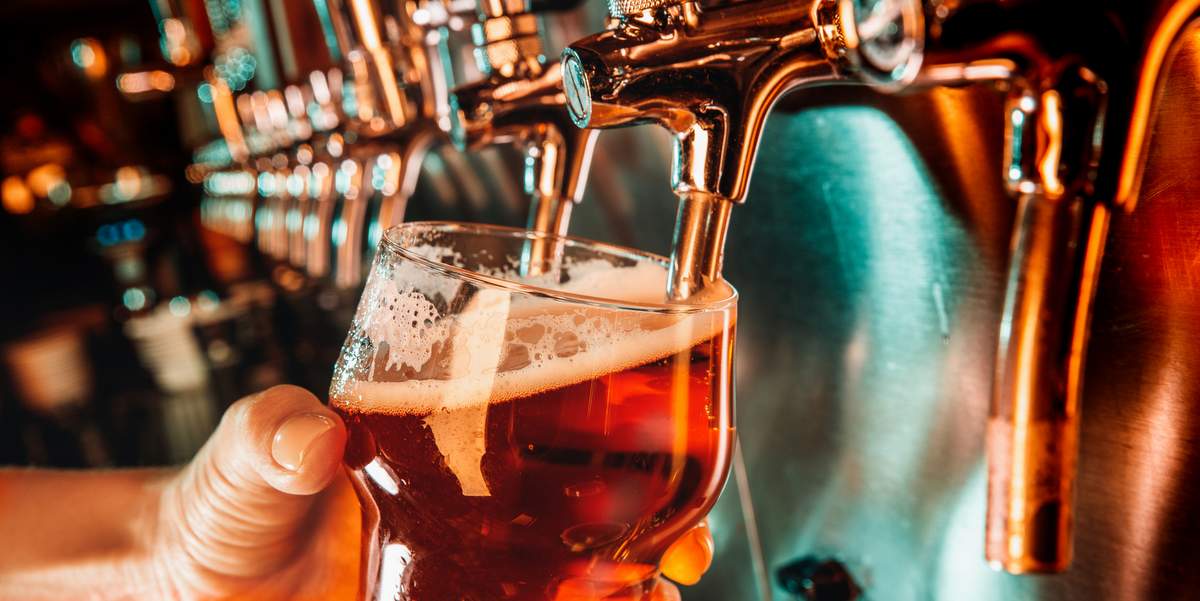
Chances are you didn’t get into commercial craft brewing for the business aspect of it. You love brewing, not taxes and trademark issues. That’s where Craft Brewing Business comes in. We scoured the industry for the best and brightest minds to lend the best business advice to keep you from pulling your hair out due to the stress of running a business. Whether you’re just getting started or you’re planning your next expansion, this flight of business-minded feature stories will help guide you through your next brewing business phase and beyond.
Most common brewery compliance, tax issues
Craft brewers are rule breakers, and it’s an ethos we encourage here at Craft Brewing Business. Well, except when it comes to those more official rules — the ones that deal with taxes and compliance and stuff. Those require some rule-abiding head nods.
Despite everyone’s best efforts, brewers encounter plenty of record-keeping and reporting miscues. Hey, it happens; this stuff is complicated. Luckily, the Alcohol and Tobacco Tax and Trade Bureau (TTB) is here to help. The group recently compiled an in-depth list of the most common compliance issues that cross their desks. The four main categories here are records, production and inventory, taxes, and reporting.
Now sit up, sharpen your No. 2 pencils and take a look at a sampling.
How to defend your craft beer trademarks
Trademarks have, once again, been the talk of the craft beer town. In past articles we have talked about how to obtain a federally registered trademark and only in passing have said that it is important to protect. Now, let’s talk about how, and why, to protect those trademarks. Trademarks were designed as a means of ensuring distinctiveness in branding so that consumers know what they are getting in terms of quality. The idea is that if Johnny Appleseed walks up to a cooler and decides to buy the Sculpin IPA with the pretty fish on the front on a Tuesday and likes what he gets, then he should be able to go back on Thursday and get the same product when he reaches for a Sculpin IPA with the pretty fish on the front.
Common craft beer branding mistakes
Most of our branding work has been with startup craft breweries, but increasingly, we’re working with established breweries who want to get their branding in line before growing their business. Here are several mistakes we continually see in craft beer branding and marketing that, if handled correctly at the outset, can save thousands of dollars and innumerable hours of work down the road. This first one is obvious. Whether a lack of understanding, time or money, many breweries go on to wrestle with a mishmash of poorly cobbled together visuals, and it comes back to bite them. A restaurateur once told me that “people taste with their eyes.” And that makes a lot of sense in food and beverage branding.
What are the historic success and failure rates of breweries?
I quote a close friend: “Craft brewers must have a license to print money.” It was a statement uttered shortly after informing said friend about Cincinnati’s Fifty West Brewing’s $1.5 million expansion, which includes volleyball courts and a cycling business. It seems like every week we announce an exotic expansion or a how-is-that-even-possible success story — from the posh, new pub/restaurant/music venue/brewery that the folks at SLO Brew are building (replete with rentable lofts) to SweetWater Brewing’s announcement that it’s looking for not just one, but TWO new breweries to expand westward. Sometimes, to the public, it must certainly appear that craft brewers are riding an unstoppable beer train of success (totally different from this snowpiercer), but is that perception a reality?
Saint Arnold’s Brock Wagner says the term ‘craft beer’ might be obsolete soon
The craft beer industry is in a weird metaphysical place right now. Physically, it is in great shape — 3,700 plus breweries open, market share up around 11 percent and tons of investment interest. But that last part is causing the weirdness, at least when it comes to the growing list of craft brewers, by the BA definition, that have now been acquired by Big Beer companies. What does it all mean for “craft beer?” And does it matter These aren’t just questions posed by a silly CBB editor, but by the founders of the craft beer movement, like Saint Arnold’s Brock Wagner. When we chatted with Wagner at the Great American Beer Fest, he went so far as to say the term craft beer might be nearing the end of its usefulness.
A primer on bonds, taxes and popular markets for new craft breweries
You don’t just love beer; you eat, breathe and, of course, drink it. And if your homebrewing has hit overdrive, it might just be time to start your own brewery. Craft beer has been steadily increasing in popularity during the past 10 years, so it’s a great time to join the movement. First, you’ll need to choose a strategic location both in terms of state and federal costs and beer culture and craft demand. Then, it’s time to get cozy with licensing laws and learn why you need an alcohol bond in your state of choice. If you want to open a brewery, as with all things in life, nothing is guaranteed but death and taxes. If you’re serious about opening your own brewery, or if you just want to see if you have what it takes, then this is the time and place to educate yourself on the basics.
Brewery compensation series part 1: How to pay your brewers
To begin, let’s think of brewery employees as falling into one of three categories: brewing, sales and front-of-house (tasting room and/or restaurant). Each has a personality and structure unique to that category, and the type of compensation that works for one set of employees may not work for another. A brewery could begin with only one category of employee, but as the business expands, so should the variety of employees. In this particular article, we will look at the issues specific to brewing teams (the other categories of employees will be addressed in articles to follow).
Brewery Compensation Series part 2: Paying the sales team
In part 2, we will look at issues specific to the sales team. These individuals are often the first representative of your brewery in the field, responsible for developing new business and serving as the “rainmaker” for the brewery. Individuals working in the sales field tend to be outgoing and self-motivated, who are drawn to the field because of their independence and enjoyment working with people. Members of the sales team typically spend considerable time outside of the office and are often compensated based on commissions or other per-sale compensation formulas. These employees may be taking over relationships the owners have spent time building and developing and come to represent the face of the business to the outside community.
What does your tasting room or brewpub say about you?
For as many splashy headlines the big craft brewers are making these days — from hugely growing their distribution footprint, to selling shares to partners, to acquiring smaller breweries of their own — the majority of the 3,000 plus craft breweries out there are focusing most of their energy at home. The brewpub or tasting room is where a reputation is made and an ethos is put forth. This is what you are about. If what you are about isn’t much different than the sports bar down the street, your beer might be good enough to lure in regulars and grow the brand, but we wouldn’t bet on it. A focus on different, customized, meaningful experiences on location is part of the reason the brewpub segment is back on the upswing. So, what are we talking about? Could be anything, just has to make sense for that brewery.
Two days with the two brothers of Two Brothers Brewing
We got the opportunity to meet the Ebel brothers at the recent Craft Brewers Conference in Portland, and like most brothers, the two had plenty of interesting stories to tell. Ensuring a fitting backdrop, we met the brothers under the golden pendulum of the Oregon Convention Center. I grabbed a table (with CBB marketing guru Pete McNeil), and we stretched out our legs. In typical CBB fashion, I had no questions prepared. Luckily, the Ebel brothers were just naturally entertaining. I threw a few questions their way, and this excellent interview became the result.
Great stories stand the test of time. If you’re hungry for even more excellent brewing business content, check out our Best Of archives for 2014 and 2013.





Sean Barnett liked this on Facebook.
Lee David liked this on Facebook.
Lou Harper liked this on Facebook.
John Wanner liked this on Facebook.
EXCELLENT!
Ryan Mader liked this on Facebook.
Brew and Be Covered liked this on Facebook.
Business pointers to carry your #CraftBrewery from 2015 into the future: https://t.co/T3mFp8bKNU #CraftBeer
#CraftBeer #CraftBrewing #Beer #BeerBiz Best of CBB 2015: Business advice to keep your brewery moving forward https://t.co/2unZGUg2ks
Best of CBB 2015: Business advice to keep your brewery moving forward https://t.co/XiuwR0GNqh via @craftbrewingbiz
“Best of CBB 2015: Business advice to keep your #brewery moving forward” https://t.co/gbIsvbFbbq https://t.co/MK4w62sY6S
Stacy Allura Hostetter liked this on Facebook.